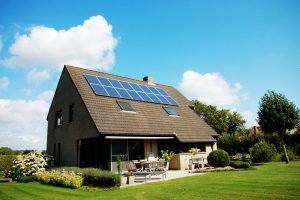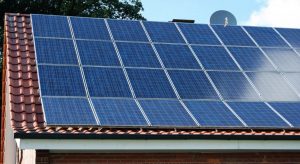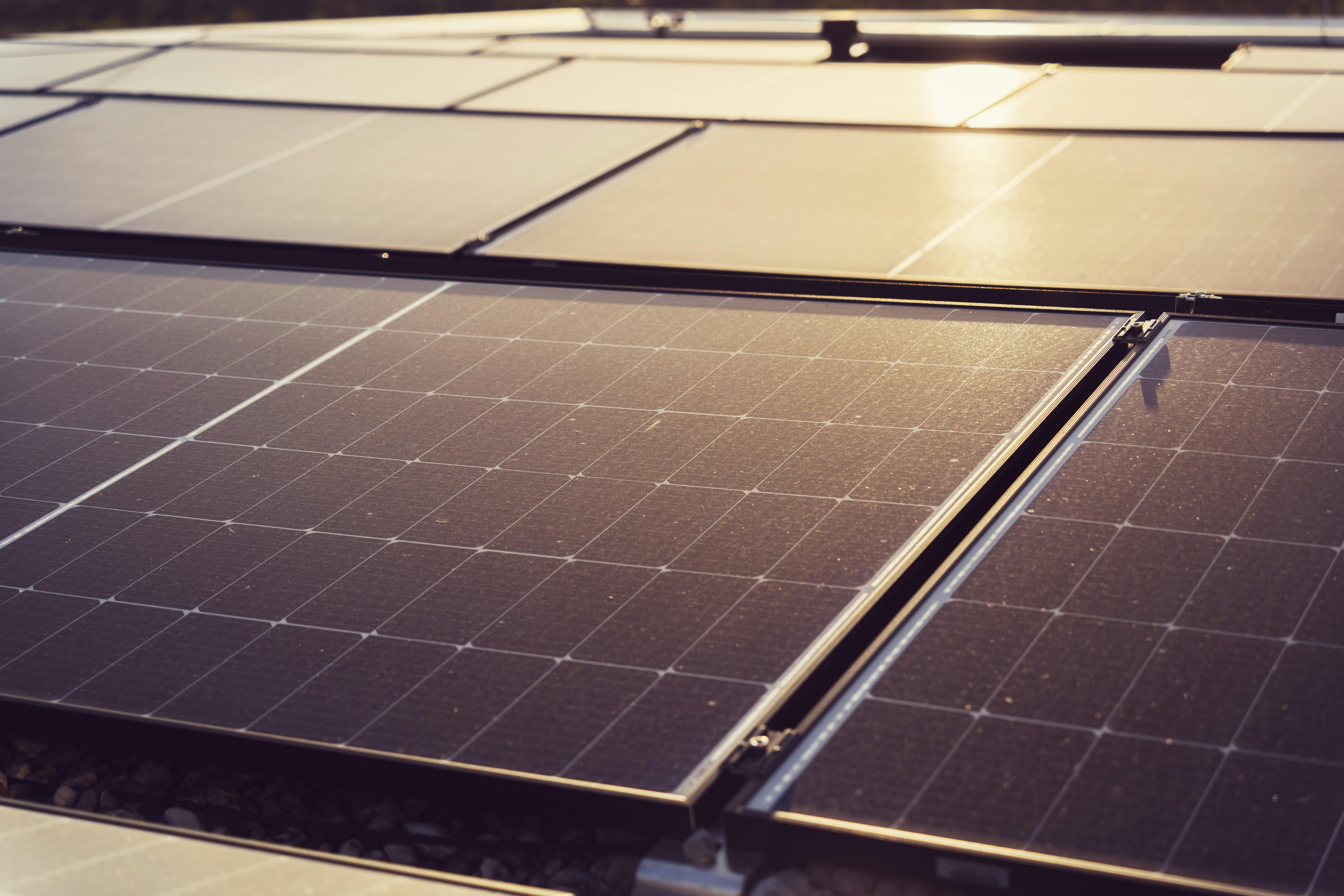How Much Does A 7500 Watt Solar System Cost? – Get A Complete Overview
Have you ever wondered how much it would cost to install a 7500 watt solar system? In today’s article, we will explore the price range of these efficient solar systems and help you understand the factors that contribute to their cost. From equipment and installation expenses to potential savings and incentives, we’ll break down everything you need to know about the price tag of a 7500 watt solar system. So, if you’re considering making the switch to solar and want to weigh the costs and benefits, keep reading!

Factors Affecting the Cost of a 7500 Watt Solar System
Installing a solar system on your property can be a smart investment, as it not only helps reduce your electricity bills but also contributes to a sustainable and eco-friendly future. However, the cost of a 7500 watt solar system can vary depending on several factors. In this comprehensive article, we will explore these factors and provide insights to help you understand and estimate the cost of installing a 7500 watt solar system.
System Size
The size of the solar system, including the number of solar panels, panel wattage, battery capacity, and inverter size, will greatly impact the overall cost of your 7500 watt solar system. It’s essential to determine the optimum system size based on your energy consumption and specific requirements.
Number of Solar Panels
The number of solar panels in your system will depend on your energy needs and the amount of sunlight available in your location. This factor greatly influences the cost, as each solar panel has a separate cost associated with it. A larger number of panels will mean a higher upfront investment.
Panel Wattage
Solar panels with varying wattages are available in the market, and their selection will affect the overall cost of the system. Higher-wattage panels generally cost more but can generate more electricity, allowing you to meet your energy needs more efficiently.
Battery Capacity
If you opt for a solar system with battery storage, the capacity of the batteries will impact the cost. Batteries store excess electricity generated by the solar panels, providing a backup power source during periods of low sunlight or power outages. Higher-capacity batteries will be more expensive but provide longer backup periods.
Inverter Size
The inverter is a crucial component of a solar system as it converts the generated DC (direct current) electricity into usable AC (alternating current) electricity. The size and type of inverter needed will depend on the system’s capacity and the number of panels. Larger inverters can handle more power, but they also come at a higher cost.
Equipment
The quality and type of equipment used in a solar system will directly impact its cost and performance. It’s important to select reliable and high-quality components to ensure maximum efficiency and longevity of the system.
Solar Panels
The cost of solar panels varies depending on the brand, quality, and efficiency. It’s crucial to choose panels that meet industry standards and have a proven track record. While cheaper panels may seem tempting, investing in high-quality panels will result in better performance and long-term savings.
Inverter
Similar to solar panels, inverters come in different types and brands. String inverters, microinverters, and power optimizers each have their own advantages and costs. It’s essential to select an inverter that is compatible with the solar panels and meets your specific requirements.
Batteries
If you choose to incorporate battery storagehttps://thebenefitsofsolarpower.com/how-much-does-a-10-000-watt-solar-system-cost/ into your solar system, the cost of batteries should be accounted for. Lithium-ion batteries are popular due to their higher efficiency, longer lifespan, and better performance in extreme temperatures. However, they tend to be more expensive than other battery types.
Mounting Hardware
Mounting hardware includes racks, brackets, and other components required to securely install solar panels on your roof or ground. The cost of mounting hardware will depend on the type of installation and the complexity involved. Ensure that the mounting hardware is durable and can withstand the local weather conditions.
Wiring and Connectors
Proper wiring and connectors are essential for the efficient functioning of a solar system. The cost of quality wiring and connectors should be considered, as they are crucial for reliable and safe operations.
Monitoring System
A monitoring system allows you to track and analyze the performance of your solar system. While it may not be necessary for all installations, it can be a valuable tool in monitoring energy production and identifying any issues. The cost of a monitoring system should be factored into the overall budget.
Installation
The installation process is another significant factor affecting the cost of a 7500 watt solar system. Several elements contribute to the overall installation expenditure.
Labor Costs
Labor costs can vary depending on the complexity of the installation, the size of the system, and the local market rates. It’s important to work with experienced and reputable solar installers to ensure a professional and efficient installation.
Permits and Inspections
Obtaining necessary permits and conducting inspections as required by local regulations is an unavoidable part of the solar installation process. Permitting fees and inspection costs vary by location and should be included in the overall budget.
Roof Condition
The condition of your roof plays a vital role in determining the installation cost. If your roof requires repairs, reinforcement, or replacement, it will incur additional expenses. It’s crucial to assess the roof’s condition before installing solar panels to avoid any unexpected costs.
Additional Electrical Work
Depending on the existing electrical infrastructure and the capacity of your solar system, additional electrical work may be necessary. This can include panel upgrades, circuit installations, or other modifications to ensure proper integration with your home electrical system.

Location
Geographical factors have a significant impact on the cost and efficiency of a solar system. The location of your property and its specific characteristics will influence how much you can benefit from solar energy.
Geographical Region
Solar system costs can vary by region due to differences in labor costs, permitting requirements, and market conditions. Location-specific factors such as available incentives and rebates also affect the overall cost.
Sunlight Availability
The amount of sunlight your location receives throughout the year affects the efficiency and generation capacity of your solar system. Areas with more sunlight will require fewer panels to meet energy needs, reducing the overall cost.
Shading
Shading from trees, nearby buildings, or other obstructions can reduce the output of your solar system. It’s important to consider shading when designing and installing your system, as additional equipment such as shade tolerance inverters or panel optimizers may be required, increasing the cost.
Roof Direction and Tilt
The orientation and tilt of your roof impact the solar panel performance. South-facing roofs with optimal tilt angles typically generate the highest energy output. Roofs facing other directions or with suboptimal tilt angles may require additional panels to compensate for the decreased efficiency.
Structural Capacity
The structural integrity of your property and its ability to support the weight of the solar system should be assessed. Reinforcements or structural modifications may be necessary, adding to the overall cost.
Incentives and Rebates
Various financial incentives and rebates can significantly reduce the cost of installing a 7500 watt solar system.
Federal Tax Credits
The federal government offers solar investment tax credits (ITC) that allow you to deduct a specific percentage of the installation cost from your federal taxes. Currently, the ITC is set at 26% of the total installation cost and is subject to change in the future. Taking advantage of this credit can significantly offset the overall cost.
State and Local Incentives
In addition to federal incentives, many states and local governments offer their own incentives and rebates to promote solar energy adoption. These incentives can vary widely and may include cash rebates, property tax credits, or grants. Researching the available incentives in your area is essential to maximize your savings.
Solar Renewable Energy Certificates (SRECs)
Some regions have programs that allow solar system owners to earn credits for the electricity generated. These credits, known as Solar Renewable Energy Certificates (SRECs), can be sold to utility companies, providing an additional source of income to offset the initial cost.

This image is property of images.pexels.com.
Average Cost Range for a 7500 Watt Solar System
While the cost of a 7500 watt solar system can vary based on the factors mentioned above, we can provide a general cost range to give you an idea of what to expect.
National Average
As of 2021, the national average cost for a 7500 watt solar system, including installation, is between $18,000 and $25,000. However, it’s important to note that this is just an average, and costs can vary significantly depending on the specific factors mentioned earlier.
Promotional Offers
Solar installers may offer promotional discounts, incentives, or financing options to make solar systems more affordable. It’s worth exploring these options and comparing quotes from different installers to find the best deal.
DIY vs Professional Installation
Some homeowners choose to install their solar systems themselves to save on installation costs. While this may reduce upfront expenses, it requires advanced knowledge, experience, and compliance with local regulations. Professional installation ensures proper system design, installation, and compliance with safety codes.
Calculating the Cost of a 7500 Watt Solar System
To get an accurate estimate of the cost of a 7500 watt solar system for your specific needs and location, consider the following steps:
Consulting with Solar Installers
Reach out to reputable solar installers in your area to discuss your energy requirements and obtain customized quotes. They will consider all the necessary factors and provide a comprehensive breakdown of costs.
Online Solar Calculators
Online solar calculators can help provide a rough estimate of the cost based on your energy needs, location, and other inputs. While these calculators can be a useful starting point, consulting with professionals is recommended for accurate estimates.
Obtaining Multiple Quotes
To ensure you’re getting the best price and comprehensive service, obtain quotes from multiple solar installers. This will allow you to compare costs, equipment options, and warranties.
Considering Financing Options
If the upfront cost is a concern, explore financing options such as solar loans, leases, or power purchase agreements (PPAs). These options allow you to spread the cost of the system over time, making it more affordable.
Financial Benefits of Investing in Solar
While the initial cost of a 7500 watt solar system may seem substantial, there are numerous financial benefits that can offset the investment over time.
Energy Savings
By generating your own electricity, you can significantly reduce or eliminate your monthly electricity bills. Over the system’s lifespan, the savings can be substantial, potentially resulting in a return on investment (ROI).
Return on Investment (ROI)
A solar system can pay for itself over time due to energy savings. The payback period varies, but generally ranges between 5 and 10 years. After that, you can enjoy free or low-cost electricity for the remaining life of the system.
Increased Home Value
Solar systems are considered a valuable home improvement and can increase the resale value of your property. Studies have shown that homes with solar panels sell faster and at a higher price compared to homes without solar.
Environmental Benefits
Investing in solar energy helps reduce greenhouse gas emissions, dependence on fossil fuels, and contributes to a cleaner and sustainable future. By reducing your carbon footprint, you are contributing to the preservation of the environment for future generations.
Conclusion
The cost of a 7500 watt solar system is influenced by various factors, including system size, equipment quality, installation requirements, geographical location, and available incentives. By considering each of these factors and obtaining professional advice and quotes, you can estimate the cost accurately and make an informed decision. Remember to consider the long-term savings and benefits of investing in solar, as it is not only an economically wise decision but also a significant step towards a greener future.

